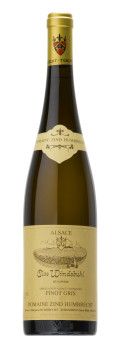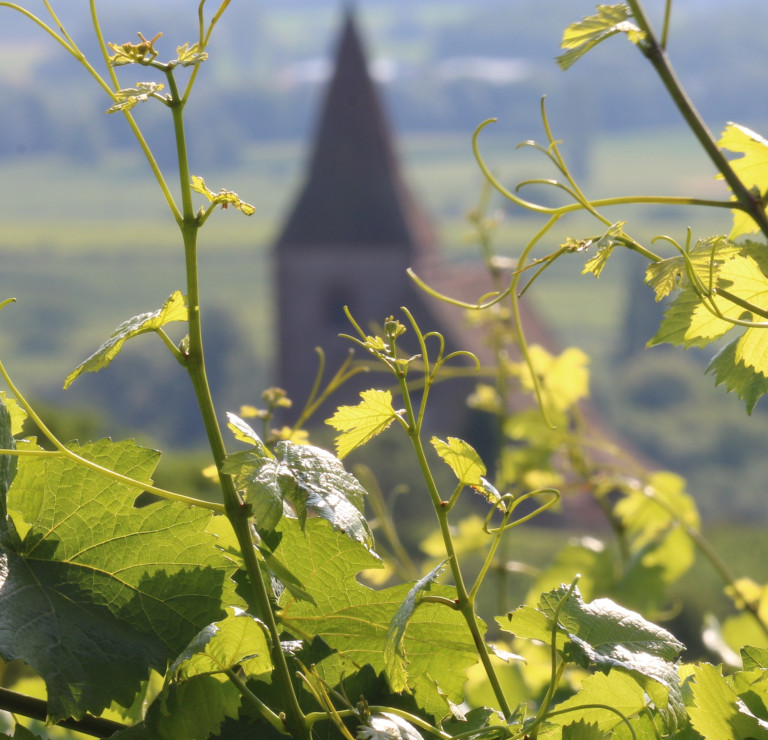
Technical presentation
| Bottling : | February 2019 |
|---|---|
| Acquired alcohol : | 13.3 ° |
| Residual sugar : | 7.7 g/l |
| Total acidity : | 3.7 g/l H2SO4 (5.7 g/l Tartrique) |
| pH : | 3.3 |
| Yield : | 23 hl/ha |
| Optimum tasting : | 2022-2042+ |
| Average age of vines : | 48 years |
| Terroir : | Clos Windsbuhl |
| Sweetness index : | 1 |
| Soil : | Medium slope, Muschelkalk calcareous, South East facing, South facing |
Description of the wine Pinot Gris Clos Windsbuhl 2017
The Pinot-Gris grape is mentioned in J. Becker’s book (Windsbuhl 1912) on the amazing history of this vineyard, and the first note on this grape variety goes back to 1760, year when the Windsbuhl benefited from major improvement after some laws restricted the plantation of vines on the valley floor. The Windsbuhl is adjacent to the Vosges forest on the top of the village of Hunawihr. From there it is possible to contemplate the valley floor and in the distance, the Black Forest in Germany. The Muschelkalk limestone can be found on some other famous vineyards in Hunawihr and nearby village of Ribeauvillé. The small crop of 2017 is more caused by hectic weather through flowering. The vineyard was also affected by the April frosts, but much less than in Turckheim. In 2017, it was easy to pick the grapes at a correct ripeness, allowing the wine to finish dry within a year of fermentation. Like all Pinot-Gris wines and Riesling, the Clos Windsbuhl was kept 18 months on his full fermenting lees before bottling.

Tasting notes
03/2019 : Yellow bright colour. The nose shows smoky, honeyed, wax, torrefaction (roasted) aromatics. There is a slight reduction, typical of the wines of this vineyard in their youth. The palate is superb, still closed, but express a broad and generous character with a dry finish. A nice intensity on the finish brings precision and character.

The Clos Windsbuhl of Hunawihr
The altitude of the vineyard coupled with Hunawihr’s tardy climate means that the Clos Windsbuhl is often one of the last of our vineyards to be harvested. This explains the aromatic quality of the Clos’ wines and the consistent balance of acidity, a guarantee of good ageing. Although often harvested late, the Windsbuhl grapes are only rarely botryitized, doubtless due to the altitude of the vineyard, but nevertheless often reach high levels of maturity.